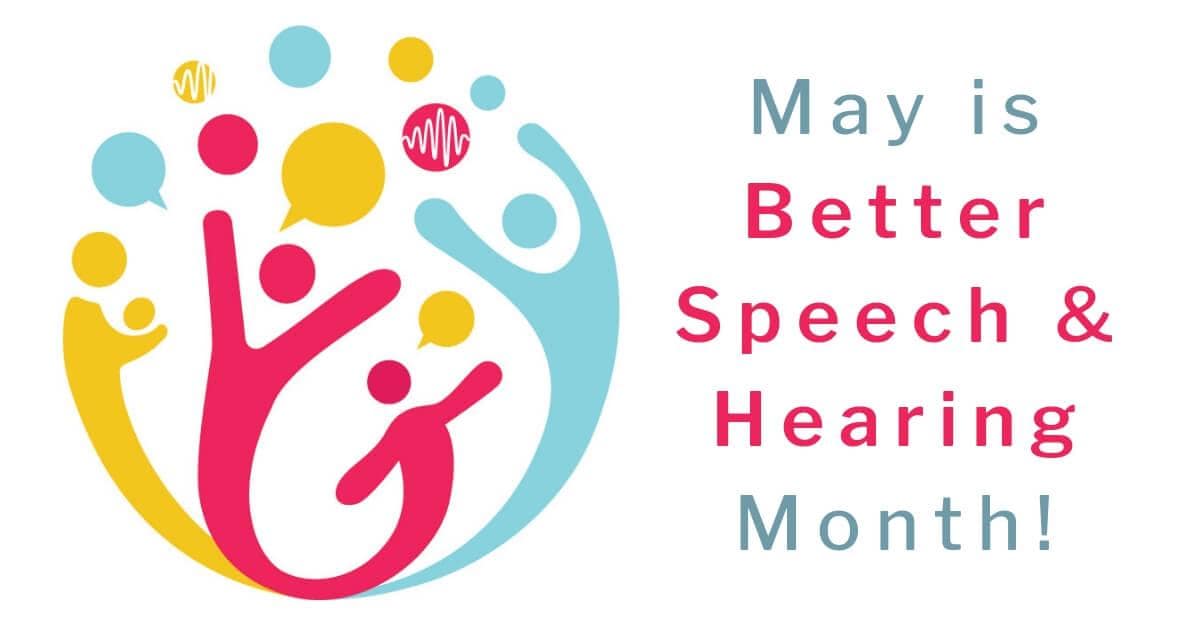
- Hearing Aids Can Improve Your Quality of Life - July 22, 2019
- Comorbidities of Hearing Loss - July 10, 2019
- Q&A About Hearing Loss - June 26, 2019
May signals a month-long endeavor by the American Speech-Language-Hearing Association of America (ASHA) to enlighten and empower us for a continued life of health and sustainable communicative abilities. The ASHA campaign offers detailed resources to guide us in ways to identify hearing impairments and treatments that infants to adults suffer from. One of the main goals in this month of May is to help us recognize a decline in hearing loss and give us resources to pursue avenues of treatment.
We can actively support and contribute to our own hearing health by attending to it at every stage of our lives. Staying informed and involved is one of the ways to prevent hearing impairments and maintaining our auditory faculties throughout the years.
Symptoms of communicative decline
The nature of hearing loss is gradual and the symptoms are easy to ignore. Turning up the volume and straining to hear everyday conversations are some of the ways we compensate without realizing it. Lack of social interaction or avoidance of social situations are some other behavioral symptoms. Affected people become slowly unable to distinguish between speech and sound, mistakenly think others are mumbling, speaking at a volume to soft or too loud and an inability to engage in conversation on the telephone.
Over time it pervades every facet of our lives and accumulates to a point causing fatigue and leading to isolation and depression. Our hearing health can be maintained and even improved when we pay attention to it. Empower yourself with education, proper hearing practices, comprehensive testing, and a proper treatment plan.
Maintenance of your hearing health
Methods of prevention should be incorporated into your daily life which includes staying away from prolonged and excessive noises whether it be from roadside construction to extended use of earbuds when listening to music.
One of the first steps ASHA recommends is to be screened on a regular basis. Screening allows for assessment and viable options dependent upon your auditory health. As an adult, you should get yourself screened once every 10 years until the age of 50 and then every 3 years after that.
A hearing health professional will determine if further testing is necessary, which treatments would be suitable and which devices would be appropriate if hearing loss has occurred.
Did you know that there are many assistive, alerting and alternative communication devices all available for our particular needs?
From amplification devices to a captioned telephone to lights that blink when your doorbell rings, know that technology is rapidly progressing towards helping us combat and curtail hearing loss. There are implants, hearing instruments and even diets that can be incorporated for a fuller hearing experience. With the proper treatment, guidance, and technological implements, we can strengthen and maintain our productivity and our most cherished relationships.
Who suffers from hearing loss?
Hearing loss is pervasive in our nation, it is one of the top three public health concerns. The National Institute of Deafness and Communicative Disorders (NIDCD) states, “One in eight people in the United States (13 percent, or 30 million) aged 12 years or older has hearing loss in both ears, based on standard hearing examinations.” According to the World Health Organization (WHO), an average of 9% of the adults in the North American region experience hearing loss which directly correlates to the noise levels of their work environment.
The numbers are large, they are growing and we will all be affected at some point in our lives.
The good news is that organizations like the NDICD fund groundbreaking research in the field of hearing loss. There is continual progress in technological tools, genetic studies and information for the general public to arm themselves with options and treatments to arrest and strengthen degenerative hearing.
Beverly Hills Hearing Center
Advocating for your own health by seeking out comprehensive screening and testing is an excellent first step. Take stock of your work environment, your professional interactions and those with your family and friends.
If you or a loved one have any doubt at all about the ability to hear well, now is the time to be proactive and take control. Make an appointment with us and we can get started on the path of continued wellness for your hearing.
